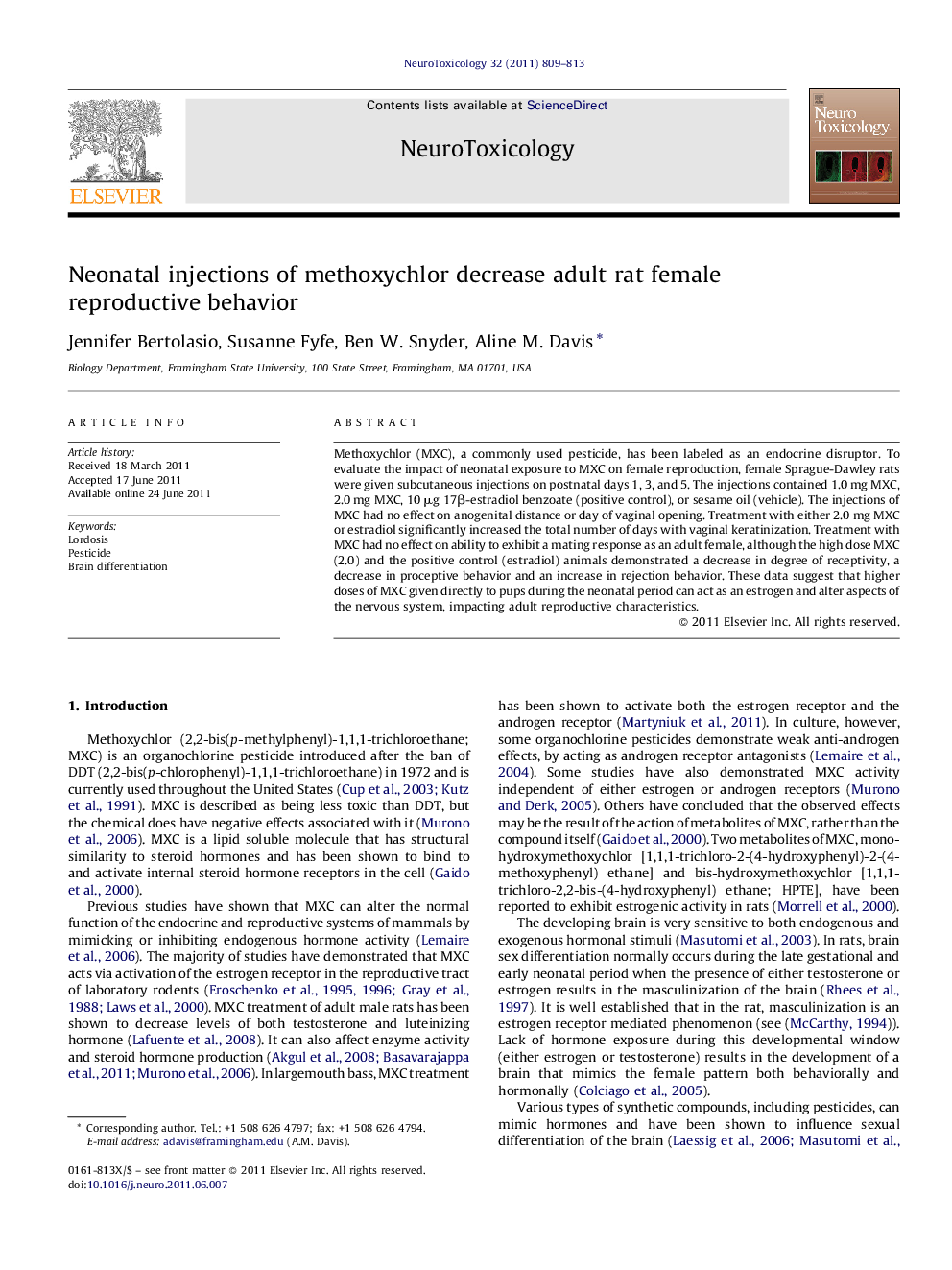| Article ID | Journal | Published Year | Pages | File Type |
|---|---|---|---|---|
| 5855434 | NeuroToxicology | 2011 | 5 Pages |
Methoxychlor (MXC), a commonly used pesticide, has been labeled as an endocrine disruptor. To evaluate the impact of neonatal exposure to MXC on female reproduction, female Sprague-Dawley rats were given subcutaneous injections on postnatal days 1, 3, and 5. The injections contained 1.0 mg MXC, 2.0 mg MXC, 10 μg 17β-estradiol benzoate (positive control), or sesame oil (vehicle). The injections of MXC had no effect on anogenital distance or day of vaginal opening. Treatment with either 2.0 mg MXC or estradiol significantly increased the total number of days with vaginal keratinization. Treatment with MXC had no effect on ability to exhibit a mating response as an adult female, although the high dose MXC (2.0) and the positive control (estradiol) animals demonstrated a decrease in degree of receptivity, a decrease in proceptive behavior and an increase in rejection behavior. These data suggest that higher doses of MXC given directly to pups during the neonatal period can act as an estrogen and alter aspects of the nervous system, impacting adult reproductive characteristics.
⢠Methoxychlor treatment directly to female neonatal rat pups alters reproduction as an adult. ⢠Effects are similar to those caused by estradiol. ⢠Treatment affected both estrus cycle and reproductive behavior.
